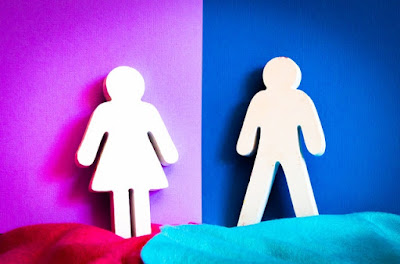Information Overlaod
 |
| (Photo Credit: pexels.com) |
The focus of the film was about how social media algorithms are
designed to keep you on the app for as long as possible. They are constantly
feeding things the user posts that will keep the person’s attention to push
more advertisement so the company can make more money. The developers from
platforms like Twitter and Facebook spoke about their worry and insight from
their insider knowledge.
My Personal Story
Being from an older generation, who grew up with what is
being called an “Analog Childhood”, I saw the invention of social media. I
remember having MySpace but because I was not a popular kid at school my
friends list was always small, and I quickly grew bored of it. I did not even bother
with Facebook until I was leaving to go across the country to college and I
wanted to keep in touch with a group of high school friends. Now I am overwhelmed
with the number of social media platforms and frankly do not bother much with
it. My Facebook now filled with chicken groups and photos. Giving advice to other
chicken owners is really the only reason I open my social media. On top of it, I
use ad blockers and other software to keep advertisement at bay. I remember the
days of crazy numbers of pop-up ads, and I do not care to deal with ads.
 |
| (Photo Credit: pexels.com) |
While I do not subscribe to much social media, I can see how
it has become extremely pervasive and intrusive into the lives of the younger
generations. I used all kinds of cassette tapes as a child because they were relatively
cheap and making a mix tape for a friend was always fun. Kids today have the
same with smart phones and computers, they are cheap and readily accessible to
all. As a parent, I can image it is hard to find a way to balance your child’s
social media usage when it is so easy for them to log in and see what is being
said about themselves or their friends.
As an aside, I would also like to point out that during the family
dinner scene that when the youngest daughter breaks open the container, she
takes off safety glasses before running off with her phone. While this is good
on the movie crew for thinking about safety, I do not think an angry teenager
would put on safety goggles. Mostly because angry teenagers do not think that
way.
So, What’s the Problem?
What I found more concerning was the fact that Google can change what you see based on location or what is more commonly asked in your geography location. As a law student that relies on facts to make their case, this makes me feel ill. I tested this theory, and the below photos are my results (from left to right) from St. Louis City, my friend Jason who lives in Western Canada, my friend Brad who has different political views and lives in the St. Louis County, my mother who lives in Madison County Illinois, and my friend Alex who has similar political views and lives in St. Louis City.
As you can see the only real difference is if the “Top Stories” box showed up, this could be a setting, or the type of computer or phone used to get the results. I thought this question would be decisive enough to get different results, but perhaps it was not. While this experiment failed, I am still highly worried if this is the way of Google. If one is looking for an answer to a question and they are given the answer they WANT to hear and not the CORRECT answer, that can have large consequences on society.
 |
| (Photo Credit: pexels.com) |




Comments
Post a Comment